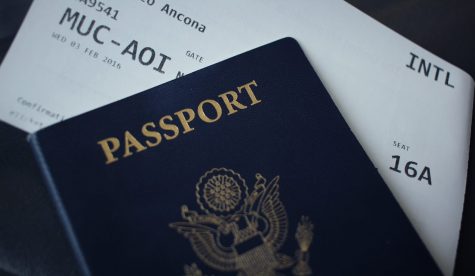The Glamorization of Overworking Pt. 2
December 11, 2020
The United States has been proven to outperform Sweden, Norway, the Netherlands, Finland, Switzerland, and Austria in the workforce industry. The U.S. is also outranked by all of these countries on the World Happiness Survey, a survey designed to rank countries based on the happiness of their citizens. Coincidence?
A New Zealand law firm that tried a 32-hour workweek saw a 24% improvement in work-life balance, creativity, attendance, and more equal job performance. A Sweden experiment offering six-hour workdays produced more efficient workers, turnover, and more profit. The U.S. takes none of these studies into consideration as it pushes to be the most overworked nation in the world.
Americans equate working extreme hours with being successful. It has been engrained into the minds of citizens that no matter where you come from or the amount of money that you start out with, anybody can be successful with undying loyalty to hard work. With the portrayal and glamorization of “rags to riches” stories from films, celebrities work to prove that everybody can live the American dream with the right amount of effort. The “work-first” values system tempts citizens to believe that if they put their careers first, they will be successful and happy in all areas of their lives.
The American culture has ordinated the importance of working hard and centering extreme value around career choices and the amount of dedication to that career. “What do you do”, or “what do your parents do”, are questions that allow strangers to make immediate assumptions about an individual, based on if they deem their career to be respectable. People showing a passion and dedication to their work garner respect from their peers, proving their worth by the number of hours they work in a week. An individual’s value is not shown by their qualities and kindness, but by their particular display of commitment to their company.
Still, think that the U.S. is not becoming the most overworked nation in the world? The International Labour Organization proved that “Americans work 137 more hours per year than Japanese workers, 260 more hours per year than British workers, and 499 more hours per year than French workers”. Along with that, at least 134 countries around the globe have mandated laws setting the maximum length of a workweek. The U.S. does not. The average American productivity rate in the workforce has increased by 400% since 1950, with employee profits raising only a fraction. Citizens generally do not fight for their working rights and usually choose to stay silent, normalizing the culture they have created.
Brooke Kruger is a Dakota Student Opinion Writer. She can be reached at [email protected]












